Torah Parashah Nitzavim-Vayelech Summary
Deut. 29:9–31:30
The Parshah of Nitzavim includes some of the most fundamental principles of the Jewish faith: The unity of Israel: “You stand today, all of you, before the Lord your God: your heads, your tribes, your elders, your officers, and every Israelite man; your young ones, your wives, the stranger in your gate; from your wood-hewer to your water-drawer.” The future redemption: Moses warns of the exile and desolation of the Land that will result if Israel abandons God’s laws, but then he prophesies that in the end, “You will return to the Lord your God . . . If your outcasts shall be at the ends of the heavens, from there will the Lord your God gather you . . . and bring you into the Land which your fathers have possessed.” The practicality of Torah: “For the mitzvah which I command you this day, it is not beyond you, nor is it remote from you. It is not in heaven . . . It is not across the sea . . . Rather, it is very close to you, in your mouth, in your heart, that you may do it.” Freedom of choice: “I have set before you life and goodness, and death and evil: in that I command you this day to love God, to walk in His ways and to keep His commandments . . . Life and death I have set before you, blessing and curse. And you shall choose life.” The Parshah of Vayelech (“and he went”) recounts the events of Moses’ last day of earthly life. “I am one hundred and twenty years old today,” he says to the people, “and I can no longer go forth and come in.” He transfers the leadership to Joshua, and writes (or concludes writing) the Torah in a scroll which he entrusts to the Levites for safekeeping in the Ark of the Covenant. The mitzvah of Hakhel (“gather”) is given: every seven years, during the festival of Sukkot of the first year of the shemittah cycle, the entire people of Israel—men, women and children—should gather at the Holy Temple in Jerusalem, where the king should read to them from the Torah. Vayelech concludes with the prediction that the people of Israel will turn away from their covenant with God, causing Him to hide His face from them, but also with the promise that the words of the Torah “shall not be forgotten out of the mouths of their descendants.”
NEW DVAR TORAH STUDIES FOR DEEPER UNDERSTANDING…
For further Torah study on parashah “Nitzavim and Vayelech”, please enjoy the latest illustrated Dvar Torah video teaching below… Listen and learn from Rabbi Isaac as he takes your understanding to an even deeper level! Enjoy and be blessed!ADVANCED NITZAVIM AND VAYELECH DVAR TORAH
Torah for your Children…
For a simple cartoon summary of the Torah parashah for your children we recommend the following video below created by G-dcast:Netzavim:
Vayelech:
Haftarah Netzavim
Isaiah 61:10-63:9
This week’s haftorah is the seventh and final installment of a series of seven “Haftarot of Consolation.” These seven haftarotcommence on the Shabbat following Tisha b’Av and continue until Rosh Hashanah. The prophet begins on a high note, describing the great joy that we will experience with the Final Redemption, comparing it to the joy of a newly married couple. Isaiah than declares his refusal to passively await the Redemption: “For Zion’s sake I will not remain silent, and for Jerusalem‘s sake I will not be still, until her righteousness emerges like shining light…” He implores the stones of Jerusalem not to be silent, day or night, until God restores Jerusalem and establishes it in glory. The haftorah then recounts God’s oath to eventually redeem Zion, when the Jews will praise God in Jerusalem. The haftorah also contains a description of the punishment God will mete out to Edomand the enemies of Israel. Isaiah concludes with the famous statement: “In all [Israel’s] afflictions, He, too, is afflicted, and the angel of His presence redeemed them…” Like a loving father who shares the pain of his child, God, too, shares the pain of His people, and awaits the redemption along with them.Haftarah Vayelech (for Shabbat Shuva)
Hosea 14:2-10; Joel 2:11-27; Micah 7:18-20
We hope these weekly Scriptural studies bless you in your spiritual understanding and growth!
As we are solely supported by your Tzedakah charity, please consider supporting this ministry for the continued spread of Truth by giving a love offering here.
Also if you have a need for prayer, please write us and let us know how to pray for you and we feel privileged to be intercessors in prayer for all our worldwide family!
Don’t forget to… – GO to our YouTube channel and… – LIKE the videos – SUBSCRIBE to our channel – SHARE our YouTube channel – SUPPORT our Worldwide outreach – FOLLOW us on Instagram – FIND us on Facebook, as well as… – SHINE THE LIGHT by spreading our website: https://www.calledoutbelievers.org with your family and friends on Facebook as well as your other Social Media platforms!
Torah Parashah teaching with video and audio and illustrations by Rabbi Isaac. © Assembly of Called-Out Believers. Use by Permission.
Website: www.CalledOutBelievers.org



2 Comments
Is Yom Kippur Monday September 28th, 2020 ?
Todah rabah Rabbi Yitzchak, your teachings have opened my eyes to the Love of our Father that sent His only begotten son Yahoshua as our ensample yet many choose not to believe. HalleluYah,
May all our eyes be opened to the truth and selfless love of our Fathers blessed Torah and the selfless love of the Living Torah, Yahoshua Hamaschiach, baruch shem k’vod malhuto le’olam va’ed, amein